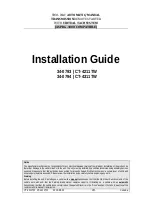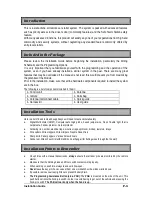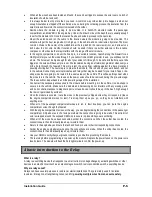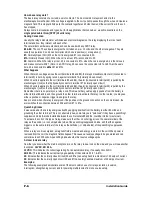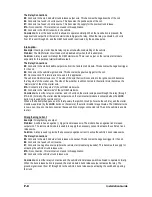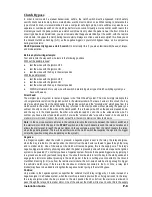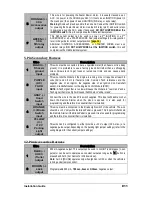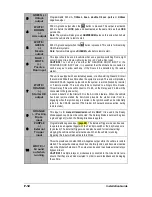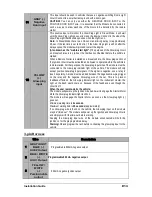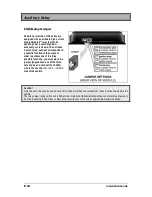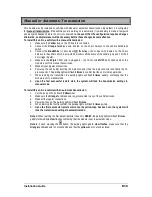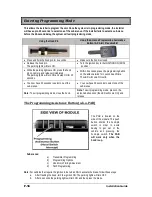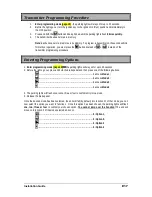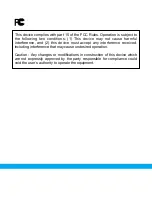
Installation Guide
P.7
Powering multiple wires from one source safely
Example: Powering a second ignition
Problem: You need to power multiple ignition wires to remote start the vehicle, but your module only has one
ignition output available.
Solution: You will need to add a second ignition relay to power the second-ignition wire. (Jumping ignition 1 to
ignition 2 is never recommended
Always use a relay. The vehicle circuits are isolated for a reason; the
wiring of the remote star module should reflect this.)
The Relay Connections
85: Connects in parallel to the ignition 1 output from the remote start module. This becomes the positive side of
the coil.
86: Connects to the Ground Out When Running wire from the remote start module. This becomes the
negative side of the coil.
87: Connected to a fused +12 volts source, that is capable of supplying power for the vehicle's second ignition
wire. This becomes the source of power for the 2
nd
ignition wire.
87A: No connection. This terminal is not used in this application.
30: Connects to the vehicle's second ignition wire. This becomes the output of the 2
nd
ignition relay.
Comments: The relay is only energized when the vehicle is running by remote start. When started with the key,
the relay is not energized and the integrity of the stock system has been preserved.
Isolation:
Example: Isolating a park light output
Problem: Some vehicle circuits need to be isolated from feedback. In some cases, when a vehicle is remote
started, feedback occurs on a circuit, and powers another device or switch, that was not intended to be
powered during the remote starts.
The following example will be a positive (+) park light circuit that feeds back and activates the windshield wipers
during remote starts.
Solution: When power is applied to the OEM park light wire it back feeds through the park light switch, and
activates the wipers. Where the connection was made from the start module’s park light output, and the
vehicle's park light circuit, the OEM park light wire is cut to isolate the park light switch and the actual parking
lights. A relay is added to the park light circuit so that power from the remote start module is only sent to the
parking lights and not the parking light switch.
The Relay Connections
85: Connects to the +12 volt park light output from the remote start module. This becomes the positive side of
the coil.
86: Connects to a negative source (where the remote start module is grounded). This becomes the negative
side of the coil.
87: Connects to the +12 volt park light output from the remote start module. This becomes the power supply for
the vehicle's park lights.
The OEM park light wire is cut. The side that is still connected to the switch becomes the “switch side”. The side
that is still connected to the parking lights becomes “parking lights side”.
87A: Connects to the “switch side” of the cut OEM park light wire.
30: Connects to the “park light side” of the cut OEM park light wire.
Comments: When the relay is at rest, the OEM park light wire is connected (through 87A & 30) and allowed to
operate normally. When the remote start module powers the park lights, the OEM park light wire is opened, and
power from the remote start module is sent only to the actual parking lights ( from 87 through 30).
Inversion:
Example: Activating a positive trunk release switch
Problem: The vehicle's power trunk release switch is activated by a positive (+) pulse, and the remote start
module's trunk output is negative (-).
Solution: A relay is used to invert the negative signal from the start module to a positive signal before it is sent
to the OEM switch.

